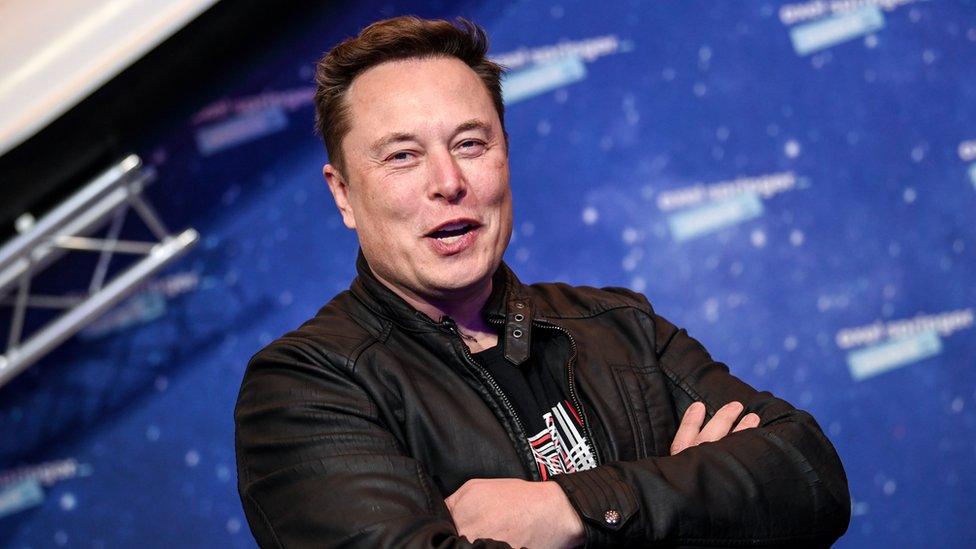Bitcoin: What is it and how does it work?
- Published
- comments
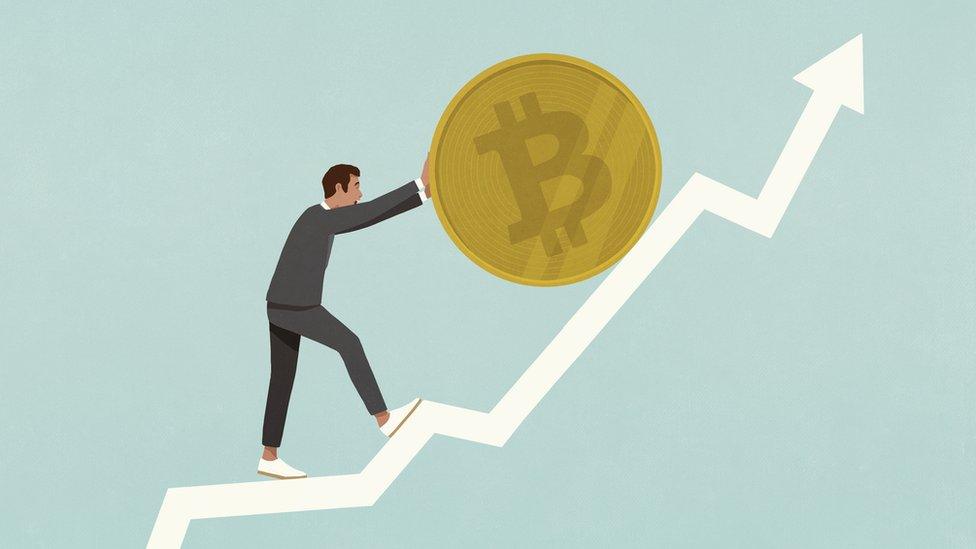
The price of Bitcoin reached around $57,000 (£45,000) - the highest it's been since 2021 - on Tuesday.
The virtual currency is heading for its biggest one-month increase in value since January 2023, and interest in it is growing.
However some analysts are cautious about its current success, as it has been known to be quite "volatile" - meaning things can change quite quickly - in the past.
With all this talk you're probably wondering - what is Bitcoin and how does it all work?
Here's everything you need to know.
What is Bitcoin?
Watch Ayshah's report on the rise of the Bitcoin
Bitcoin, often described as a cryptocurrency, a virtual currency or a digital currency - is a type of money that is completely virtual - there are no physical coins or notes.
It's like an online version of cash. You can use it to buy products and services, but not many shops accept Bitcoin and some countries have banned it altogether.
In October 2021 the online payment service, PayPal, announced that it would be allowing its customers to buy and sell Bitcoin.
The physical Bitcoins you see in photos are just for show. They would be worthless without the private codes printed inside them.
Bitcoins can be split into, or made up of smaller units - for example, a satoshi is the smallest monetary unit a Bitcoin can be split into.
One bitcoin is made up of 100,000,000 satoshis.
Satoshis are named after Bitcoin's inventor Satoshi Nakamoto, who published a big document about Bitcoin in 2008.
Very little is known about the creator of bitcoin - the name Satoshi Nakamoto is thought to be a pseudonym - a fake name - and some people even think there could be more than one person behind its creation.
How does Bitcoin work?
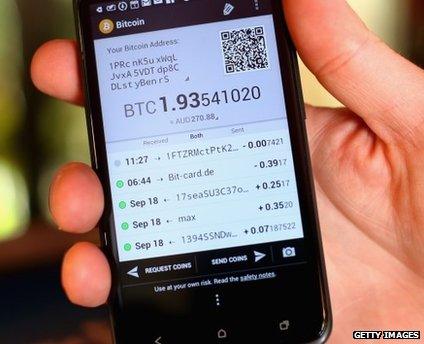
A Bitcoin wallet app on a smartphone
Each Bitcoin is basically a computer file which is stored in a 'digital wallet' app on a smartphone or computer.
People can send Bitcoins (or part of one) to your digital wallet, and you can send Bitcoins to other people.
Every single transaction is recorded in a public list called the blockchain.
This makes it possible to trace the history of Bitcoins to stop people from spending coins they do not own, making copies or undo-ing transactions.
How do people get Bitcoins?
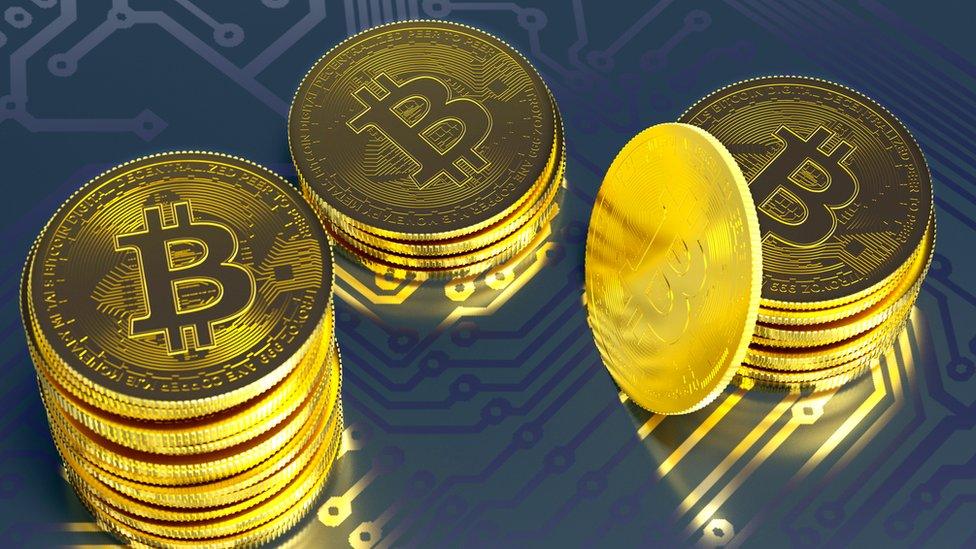
There are three main ways people get Bitcoins.
You can buy Bitcoins using 'real' money.
You can sell things and let people pay you with Bitcoins.
Or they can be created using a computer.
How are new Bitcoins created?
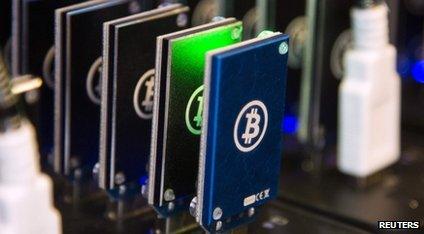
People build special computers to generate Bitcoins
In order for the Bitcoin system to work, people can make their computer process transactions for everybody.
The computers are made to work out incredibly difficult sums. Occasionally they are rewarded with a Bitcoin for the owner to keep.
People set up powerful computers just to try and get Bitcoins. This is called mining.
But, the sums are becoming more and more difficult to stop too many Bitcoins being generated.
If you started mining now it could be years before you got a single Bitcoin.
You could end up spending more money on electricity for your computer than the Bitcoin would be worth.
Currently it is thought that the total amount of Bitcoins is capped at 21 million, with 19 million having been mined already.
However, because of something called halving - a way to slow down the rate at which people find Bitcoins, the final Bitcoin (or more likely satoshi) is not expected to be found until around 2140.
Why are Bitcoins valuable?
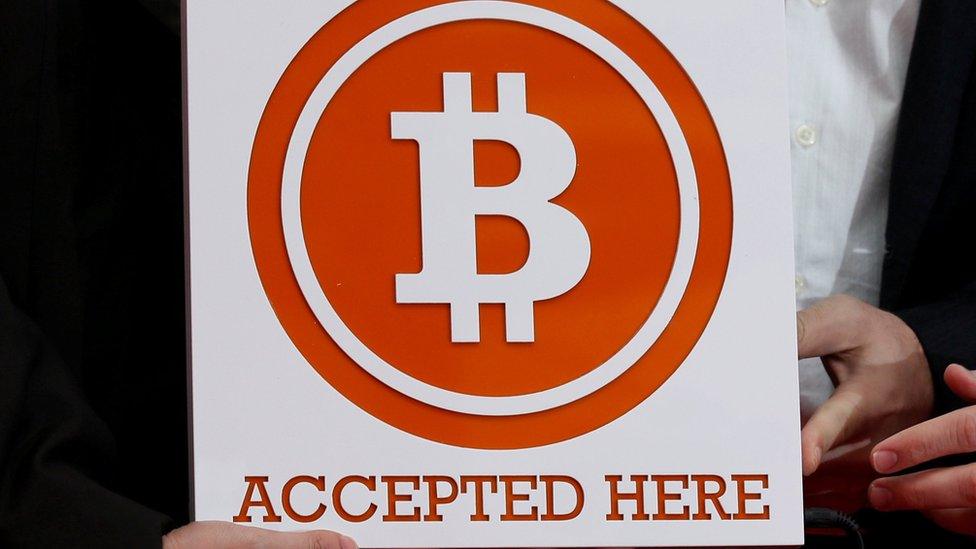
Bitcoins are valuable simply because people believe they are
There are lots of things other than money which we consider valuable like gold and diamonds. The Aztecs used cocoa beans as money!
Bitcoins are valuable because people are willing to exchange them for real goods and services, and even cash.
Why do people want Bitcoins?
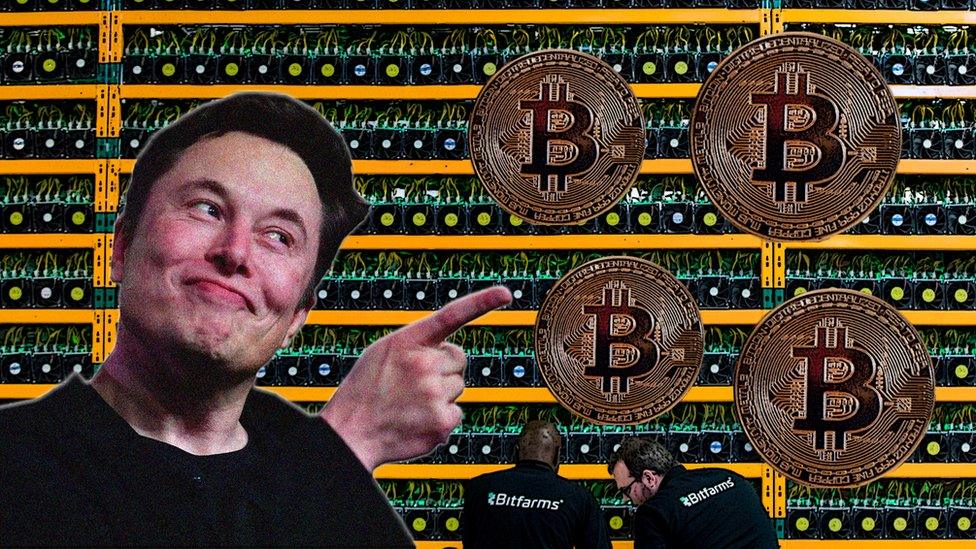
Some people like the fact that Bitcoin is not controlled by the government or banks.
People can also spend their Bitcoins fairly anonymously - meaning people don't know who you are. Although all transactions are recorded, nobody would know which 'account number' was yours unless you told them.
In an online chat with social media users in 2021, one of the world's richest people, Elon Musk, said he was a big supporter of Bitcoin.
He even went as far as to change his social media bio to "#bitcoin".
He has repeatedly shown his support to online currencies in recent years and caused major movements in their values due to his own personal wealth and influence.
This particular endorsement led to the value of Bitcoin to rise significantly.
Is it secure?
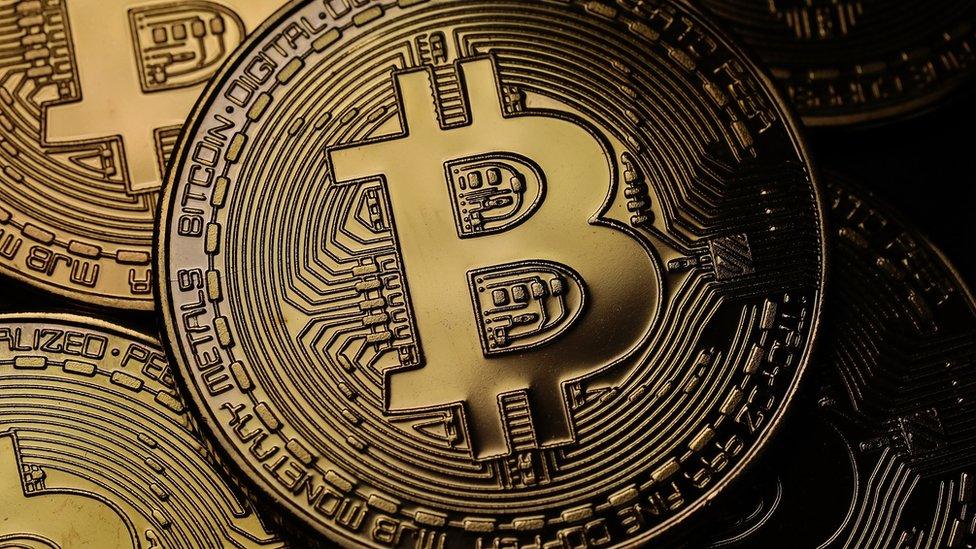
Every transaction is recorded publicly so it's very difficult to copy Bitcoins, make fake ones or spend ones you don't own.
It is possible to lose your Bitcoin wallet or delete your Bitcoins and lose them forever. There have also been thefts from websites that let you store your Bitcoins remotely.
The value of Bitcoins has gone up and down over the years since it was created in 2009 and some people don't think it's safe to turn your 'real' money into Bitcoins.
This concern was expressed by the head of The Bank of England, Andrew Bailey, in October 2020.
He said that he was "very nervous" about people using Bitcoin for payments pointing out that investors should realise its price is extremely volatile.
By this, he meant that the value could drop significantly at any moment and investors could lose a lot of money.
- Published10 January 2021
